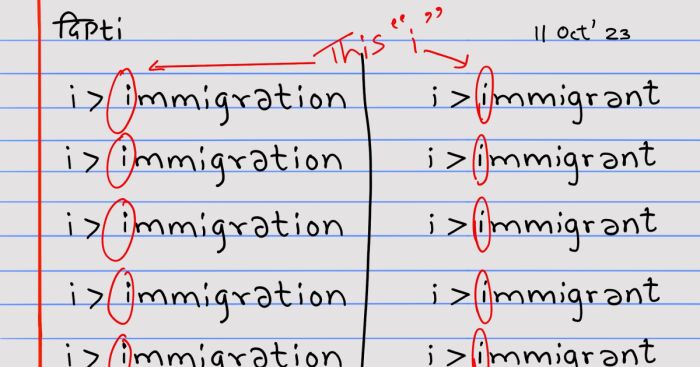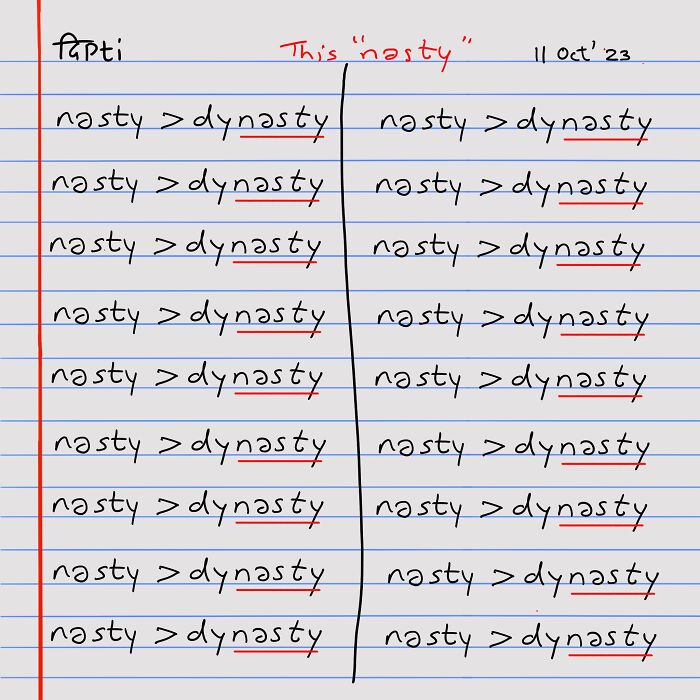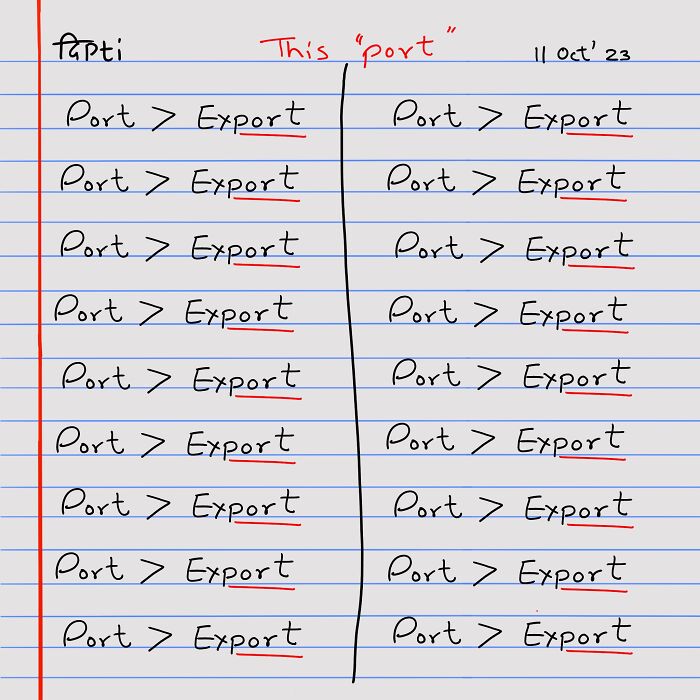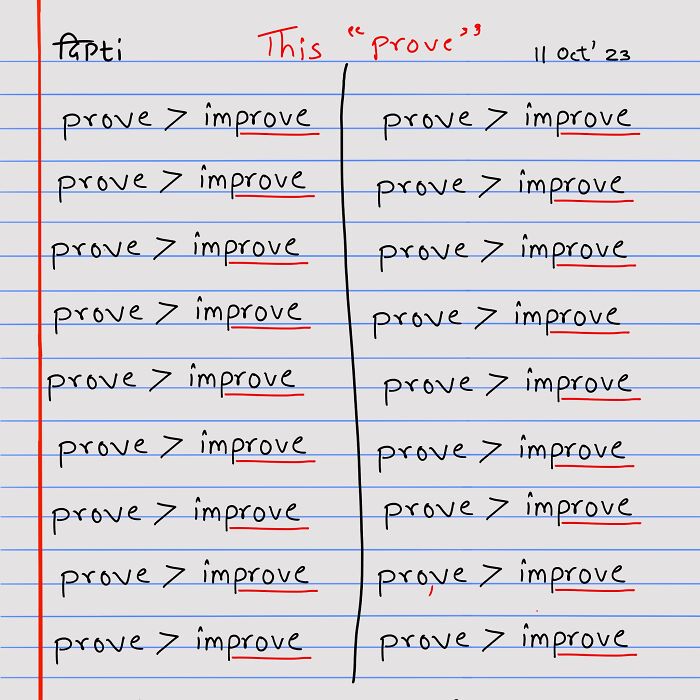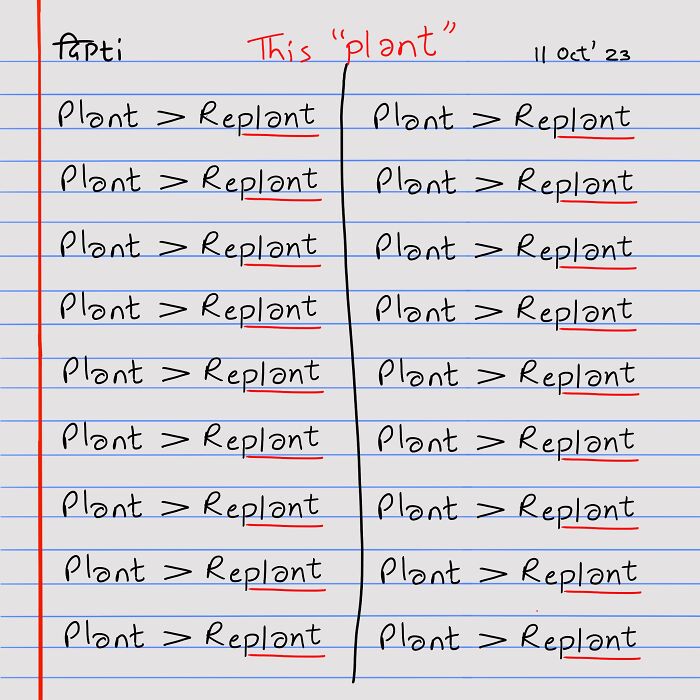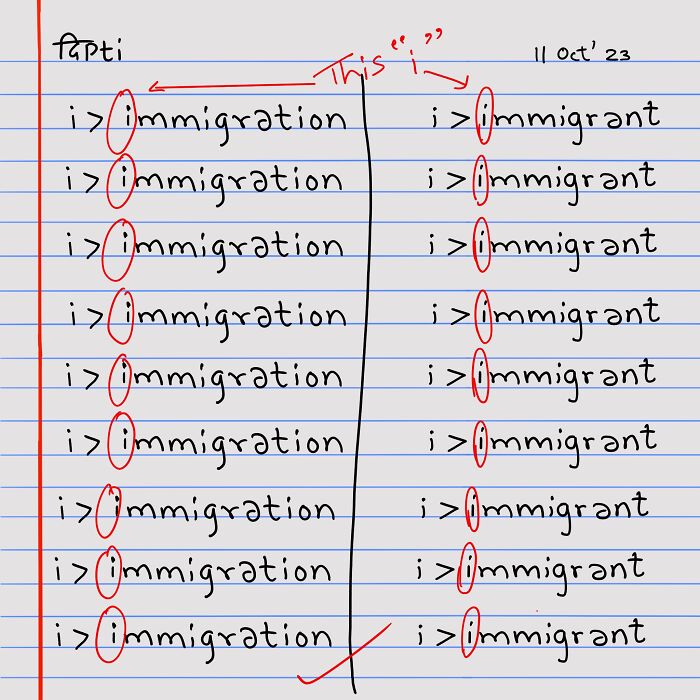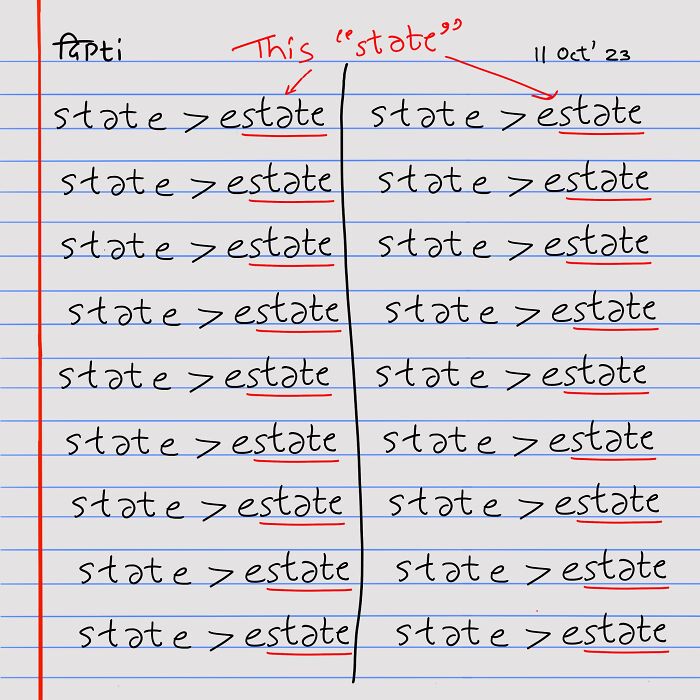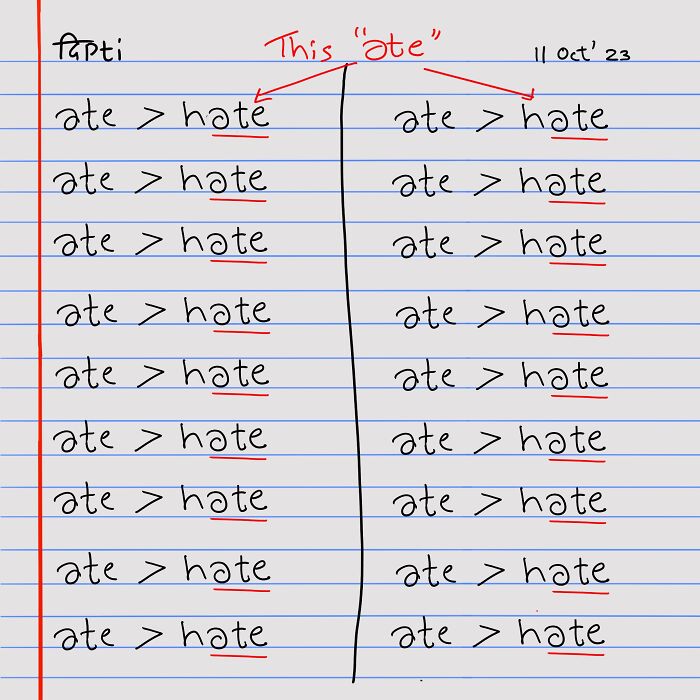In the dynamic world of creative expression, some individuals manage to stand out not only for their artistic prowess but also for their unique approach to integrating it with larger societal narratives. Dipti, a talented artist, is a prime example of this. Her distinctive ability to intertwine geopolitical perspectives with her art has created a niche that's both thought-provoking and visually captivating.
Dipti's ability to seamlessly merge geopolitics with her art is a testament to her vision and talent. Her work serves as a reminder that art has the power to transcend boundaries, challenge perceptions, and spark meaningful conversations about the world we inhabit. Through her unique perspective, Dipti inspires us all to view art not just as a form of expression, but as a lens through which we can better understand our complex and interconnected world.
More info: pin.it
This post may include affiliate links.
Nasty > Dynasty
The maxim "Nasty > Dynasty" reflects the historical reality that some ruling dynasties have been associated with oppressive or aggressive policies. It serves as a cautionary reminder to critically assess the actions and policies of ruling families or political lineages, as they can significantly impact a nation's geopolitical standing and relations with other countries. This observation highlights the need for vigilant scrutiny and a discerning approach when dealing with entrenched political entities in international affairs.
Port > Export
The adage "Port > Export" underscores the critical role of infrastructure and connectivity in international trade and influence. Without investing in and recognizing the strategic importance of ports, a nation may face significant challenges in effectively participating in global commerce and exerting geopolitical sway. This principle emphasizes the need for forward-thinking policies that prioritize the development
Prove > Improve
Axiom "Prove > Improve" resonates as a stark reminder that substantiating one's capabilities and commitments is vital before aiming for geopolitical advancements. Without demonstrating reliability, adherence to international norms, and the capacity to address regional challenges, a nation may struggle to gain credibility and trust on the global stage. This principle emphasizes the need for tangible actions to precede aspirations of geopolitical progress, underlining the significance of evidence-based diplomacy and strategic initiatives.
Plant > Replant
The axiom "Plant > Replant" emphasizes the importance of establishing a strategic presence before seeking to reassert influence. Without initial diplomatic, economic, and security investments in a region, attempting to regain influence or address challenges becomes considerably more challenging. This principle underscores the need for proactive and sustained engagement to secure a solid foundation before pursuing further geopolitical objectives.
I > Immigration
In the geopolitical landscape, the transition of "i > immigration" is raising concerns when immigrants prioritize self-interests over integration into the migrated nation. This trend may strain social cohesion and potentially lead to geopolitical tensions. Striking a balance is vital for sustainable and harmonious international relations.
The OP is talking about herself in the third person, as though people are so stupid they can't figure this out. Pure narcisissm.
Late > Calculate
In the realm of geopolitics, timeliness in decision-making and strategic calculations is paramount. If a nation lags behind in accurately assessing geopolitical dynamics, it risks making ill-informed choices that could have far-reaching consequences. This underscores the critical importance of staying informed, agile, and proactive in navigating the complex and rapidly evolving geopolitical landscape.
State > Estate
The transition from "state" to "estate" highlights the evolution of a nation's role on the global stage. A well-established state can leverage its resources, influence, and alliances to shape international affairs. This transformation underscores the significance of strategic development and diplomacy for a nation to progress from a mere territorial entity to a powerful player in the geopolitical arena.
Ate > Hate
This principle "ate > hate" highlights the value of diplomacy and conflict resolution in maintaining peace and stability on the global stage. In geopolitics, the transformation from "ate" to "hate" signifies the importance of addressing underlying issues to prevent hostility and conflict. When nations engage in constructive dialogue and cooperation, it diminishes the likelihood of animosity and fosters more stable international relations.

 Dark Mode
Dark Mode 

 No fees, cancel anytime
No fees, cancel anytime 






